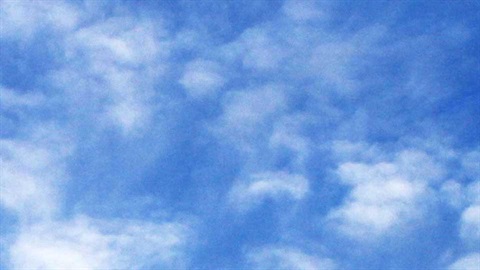Questions about 26 January

Have a look at what some of the most frequently asked questions are around 26 January.
Does this mean that Darebin City Council is anti-Australia Day?
We are not anti-Australia Day, nor opposed to the celebration of national identity. We are opposed to celebrating our national identity on 26 January, a day which causes such great distress to Aboriginal and Torres Strait Islander peoples.
Will the Mayor, Councillors and staff of Darebin City Council still take a public holiday on 26 January?
As elected representatives, the Mayor and Councillors work every day for the Darebin community, including public holidays. 26 January remains a national public holiday, and Council's customer services centres and libraries will be closed. However, household rubbish and recycling collections will take place as normal. Our leisure centres will also open but may have amended timetables.
Will I lose my public holiday on 26 January?
No, we do not want to take away the 26 January public holiday. Council is simply looking for more culturally respectful ways to mark 26 January.
Why doesn't Council stick to "rates, roads and rubbish"?
It is the role of the Council to provide governance and leadership for the local community through advocacy, decision making and action. Under the Victorian Local Government Act 2020 we have a responsibility to deliver a range of essential programs and services that are accessible, equitable and meet the needs of the Darebin community
Further to this, Section 8 of the Act states that Council must act “for the benefit and wellbeing of the municipal community”. Darebin's local Aboriginal and Torres Strait Islander community has told us that 26 January celebrations have a significant negative impact on their health and wellbeing. As a Council, we have a legislative responsibility to ensure everyone’s health and wellbeing (Victorian Public Health and Wellbeing Act 2008) and foster human rights (Victorian Charter of Human Rights and Responsibilities Act 2006), including Aboriginal and Torres Strait Islander cultural rights.
This is a Federal Government issue, why is Darebin Council getting involved?
We are involved because this is a local issue as much as it is a national one. The way we mark 26 January has a significant negative impact on the local Aboriginal and Torres Strait Islander community. We have a long-standing and collaborative relationship with Darebin's Aboriginal community and are proud to be a leader on Aboriginal issues within the local government sector. Darebin also has a long-standing link to this issue through Aboriginal Elders Bill Onus, Jack Patten, Margaret Tucker and Pastor Douglas Nicholls who were part of the 'Day of Mourning' protest in Sydney on 26 January in 1938. All of these Elders went on to play strong leadership roles in Darebin's Aboriginal and Torres Strait Islander community.
26 January is our national day of celebration – why should the date be changed?
The date should be changed so it can be a celebration that includes all Australians – especially First Australians. Australia Day only became a national public holiday celebrated by all states and territories in 1994.
Will Darebin City Council be cancelling Australia Day celebrations?
No. Council does not hold national celebrations on 26 January.
In August 2017, Darebin Council decided not to hold a citizenship ceremony on 26 January and instead to move it to another date in the year out of respect for the Aboriginal and Torres Strait Islander communities. The Federal Government previously revoked our right to preside over citizenship ceremonies in our local community, however in 2022 updated the Australia’s Citizenship Ceremonies Code to allow councils to hold a ceremony three days prior or the three days after Australia Day.
In line with this, Council will host its 2025 Citizenship Ceremony on Wednesday 29 January.
Can Darebin residents still celebrate 26 January?
The Darebin community is welcome to celebrate on 26 January in any way they choose. We encourage people to reflect about what this date really means in the history of our nation and its effect on the local Aboriginal and Torres Strait Islander community.
When are your citizenship ceremonies? Does the Council want to hold them?
Council holds multiple Citizenship Ceremonies throughout the year, with future dates listed publicly on Council’s website.
In April 2023, we hosted our first Citizenship Ceremony since 2017 and have continued holding them since then. This followed the Federal Government's decision in December 2022 to restore the Council's authority to preside over these ceremonies.
Citizenship Ceremonies allow us to support and celebrate our new citizens on one of the most significant days of their lives. As a proud, diverse community and a Welcoming City, we value the opportunity to host these ceremonies. At the same time, we remain committed to honouring and respecting Aboriginal and Torres Strait Islander Communities, as part of our Statement of Commitment to Aboriginal and First Nations peoples.
What did Council base its decision on in relation to not hold a citizenship ceremony on 26 January?
We have a longstanding relationship with the Aboriginal and Torres Strait Islander Communities in Darebin and the way we mark 26 January has been a topic of discussion with the community for many years as it has a disproportionately negative impact on Aboriginal and Torres Strait Islander peoples.
We consulted with Aboriginal and Torres Strait Islander peoples with links to Darebin in 2017 and we also surveyed non-Aboriginal people through our advisory committees. The consultation showed a strong level of support for Council supporting the #changethedate campaign:
In 2022, the Federal Government updated Australia's Citizenship Ceremonies Code, allowing councils to hold ceremonies within three days before or after Australia Day. We adhere to this guideline.